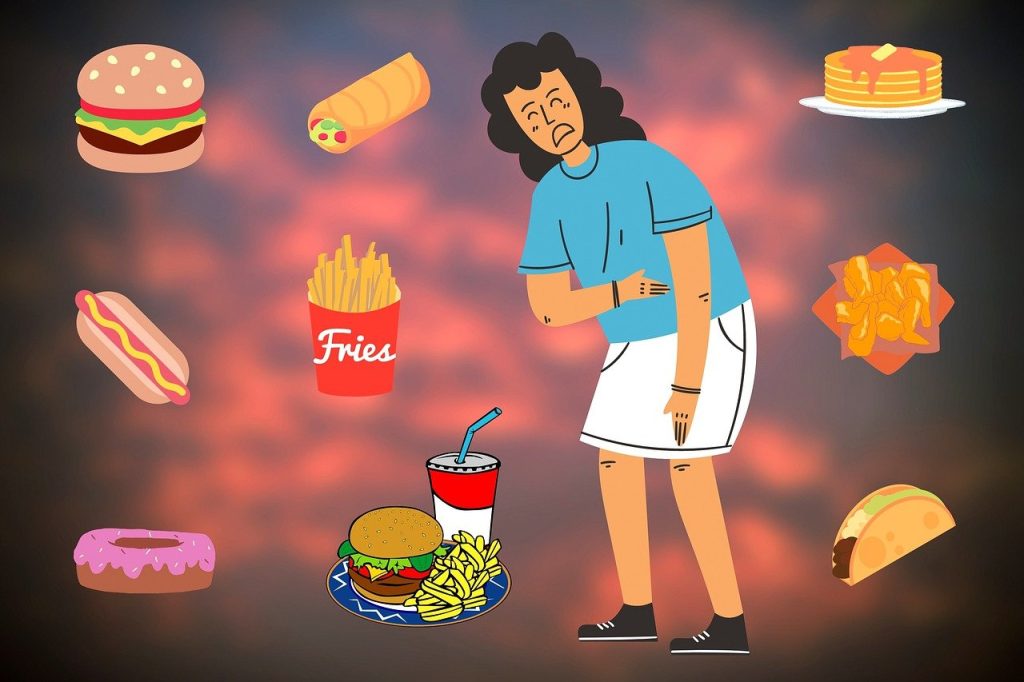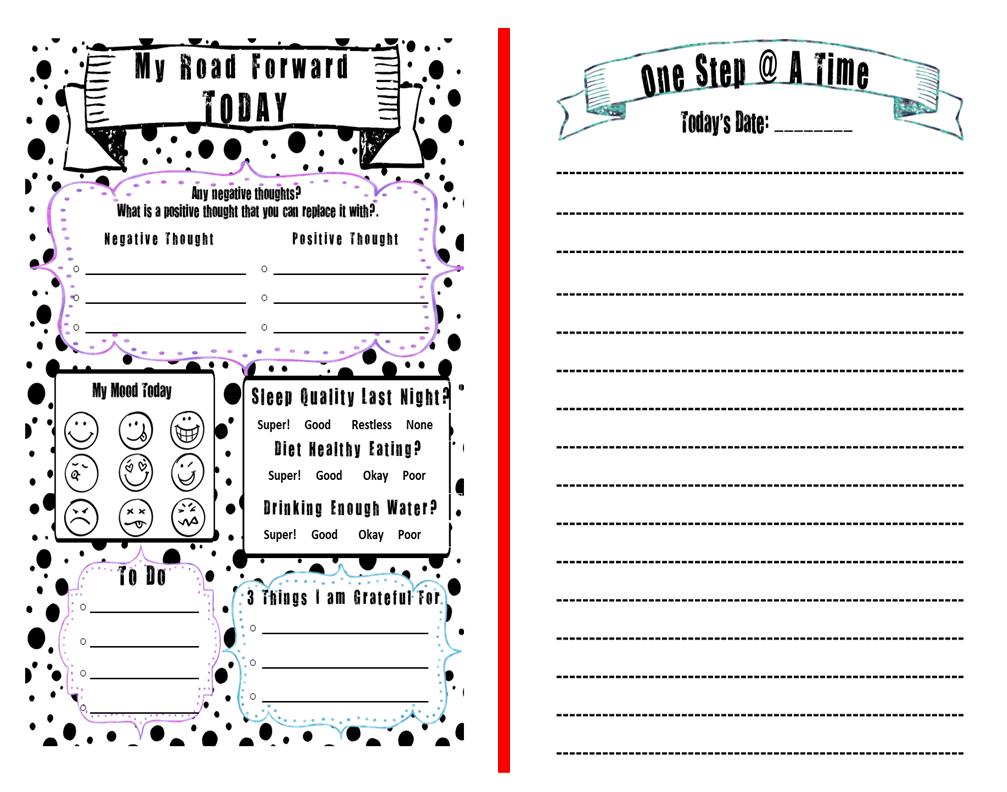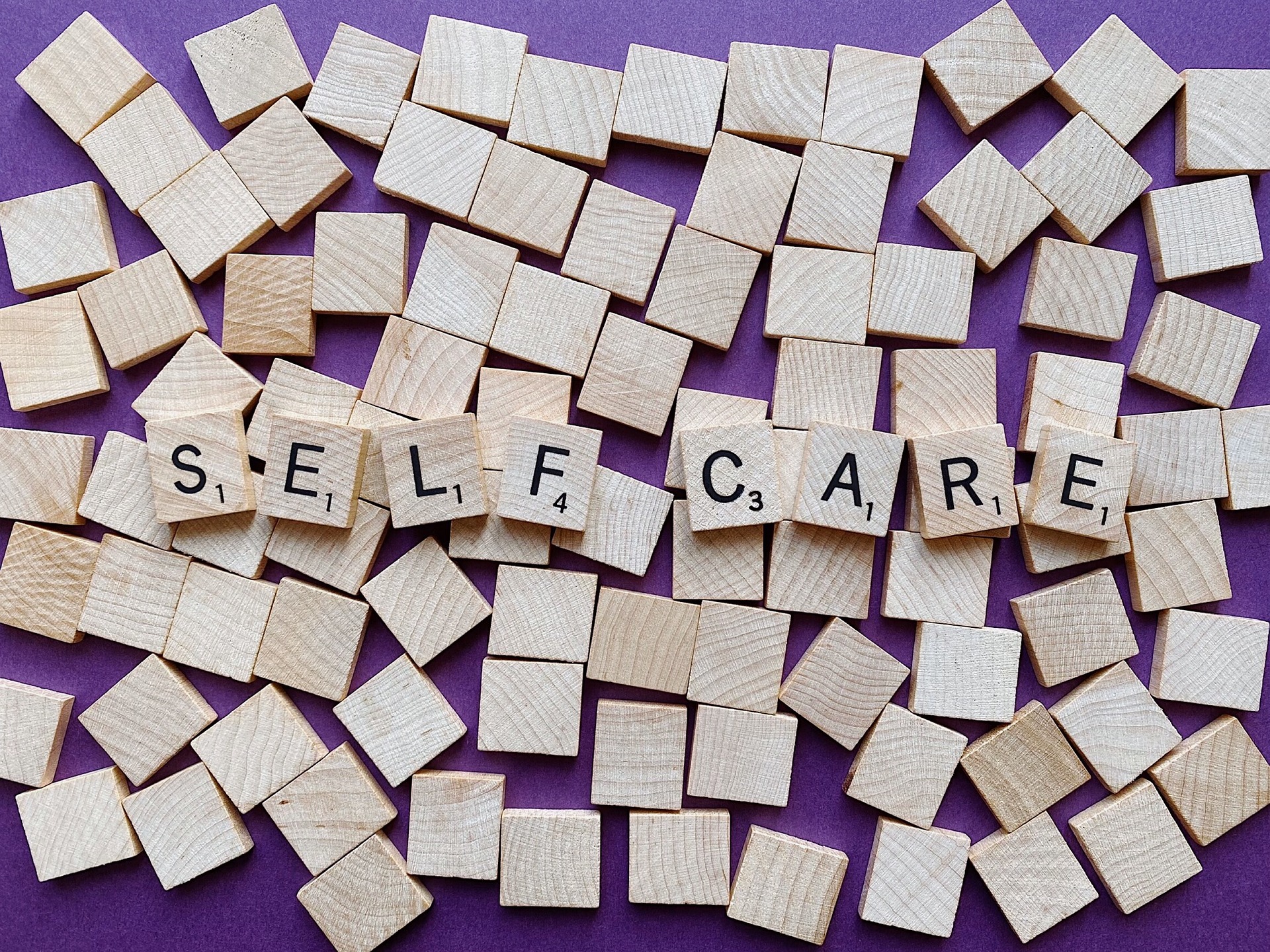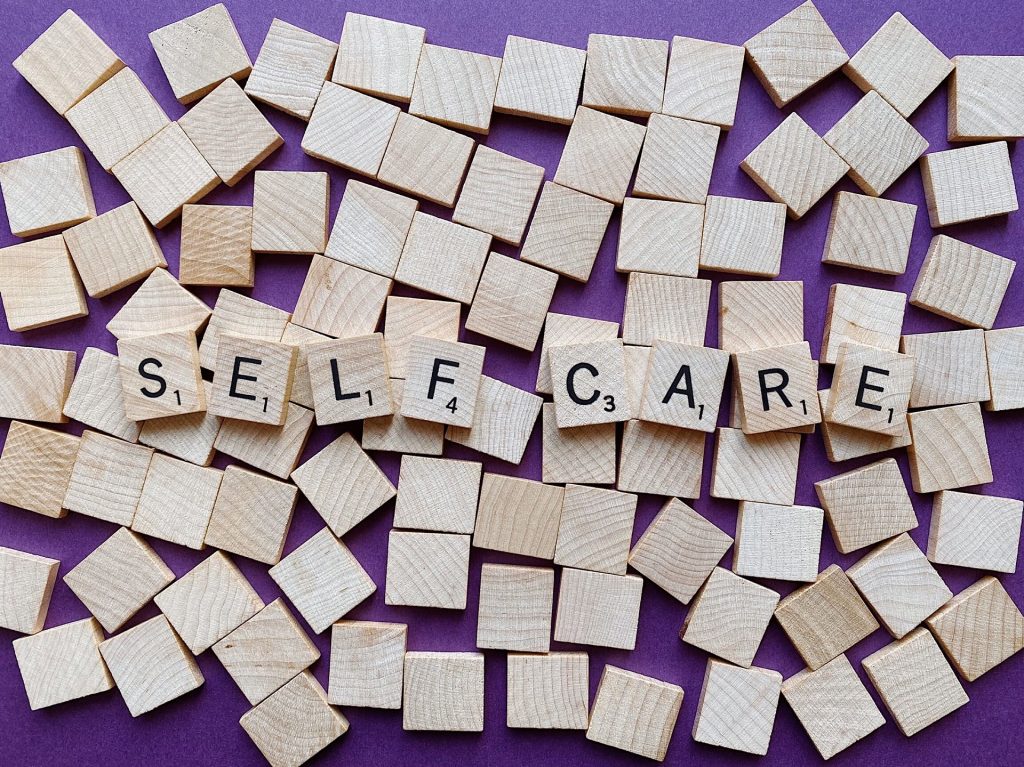Wellness
24 Tips for Happiness

We all have the potential for happiness and deserve to be happy. In fact, everything we do is directed to this goal, yet happiness seems out of our reach. Genuine happiness has nothing to do with appearance, fame or fortune. The good news is that we can make it happen.
We all have the potential for genuine happiness. There is no gene or DNA marker that determines who will be happy and who will not. We make choices throughout our lives, and the result of all these choices combined determines our level of happiness. Make the right choices and happiness can be yours.
Here are just a sampling of some of the tactics we can employ in a roadmap to help guide us toward genuine happiness:
1. Look For The Positive In Everything
Source: Upsplash
The first step is to change your mindset. The road to happiness starts with training your mind’s eye to see things in a different light. By gaining a new perspective, you will start to see that things aren’t all bad. Even the worst of situations tend to present itself with some form of silver lining. All you need to do is find it.
2. Accentuate The Positive
Source: Pexels
Remember that silver lining? Here’s what you need to do when you find it. You need to focus on it. Phase-out all the negative things that are going on. By letting go of these distractions, you will surround yourself with positive energy that will help you create positive results.
3. Practice Good Selfishness
Source: Pexels
When you are in a relationship, it is important to show your partner how you love them through different acts of affection. Giving them gifts, spending time with them, and pampering them from time to time are some of the ways you can show that you love them. When you do these things, you make your partner happy. Now, imagine that you were in a relationship with yourself. Don’t you deserve to show some self-love every now and again?
4. Listen To Your Feelings
Source: Unsplash
There are times when you seek other people’s opinions and advice. It is often easier to approach friends, family, or even strangers than to make your own decision. For one, they are sure to give you a more objective outlook on the situation. But, sometimes, what may seem to be the right decision just doesn’t feel like it. Listening to your feelings allowing your subconscious take over. Skip the overthinking and allow yourself to follow your heart.
5. Give Of Yourself
Source: Unsplash
Giving others joy is one way to get you smiling. Not only is it a way to fill yourself up with feel-good hormones, but you also get to make a difference in someone else’s life too. It doesn’t matter how much you give or what you do to help, the mere act of caring for others helps you become more compassionate about the things – and the people – around you. Opening up your heart to helping is opening up your life to happiness.
6. See It in Your Mind
Source: Unsplash
You have the ability to make things happen using your mind. One of the common methods is to use visualization—getting a picture in your mind of whatever it is that you want to happen. It does not actually have to be a visual picture; it could be a feeling, a smell, a sound, or any combination of the senses. Imagine finding the perfect parking spot near the entrance as you arrive at the supermarket or mall – what would you do? The sky’s the limit but persevere! We are not used to utilizing this tool so it may take some practice.
7. Accept The Things You Cannot Change
Source: Pexels
The only thing you can get from worrying about the things which you have no control over is stress. Your energies will be much more productive when you redirect them to other things in life – learning a new skill, reading more books, or spending more time with your friends and family. When you start to spend less time stressing over the things you can’t change, you’ll realize that you have so much more time to change the things that you can.
8. Take Responsibility For Your Choices
Source: Unsplash
Good or bad, there are consequences to anything you do. Instead of spending hours, days, or even months, thinking about how to avoid facing those problems, tackle them head on. You’ll find that overcoming those challenges will give you a sense of fulfillment, and take away that sense of guilt that’s been keeping you from being happy.
9. Schedule Regular “Self Care”
Source: Unsplash
Taking care of yourself is an important note to keep in your journal. Giving yourself a few hours a week to pamper yourself is not self-indulgence, it’s a way to stay sane and happy. You don’t need weekly spa trips – but those could work too. Instead, something as simple as scheduling you-time for a long bath at the end of the day can be all it takes.
10. Make Time To Pray or Meditate
Source: Pixabay
Clearing your mind has long been shown to have a myriad of benefits on physical, mental, and emotional well-being. Meditation is one way to rewire your brain, helping you change your perspective. Prayer helps you to trust in something bigger than you or your circumstances. The silence will help you focus on your present instead of on your future plans or past regrets.
11. Remove Your Limitations
Source: Pexels
Stop focusing on the negatives. Setting those boundaries may be the thing that is preventing you from being happy. It could be just beyond the line that you drew when you said “I can’t.” Pushing yourself to move beyond will open up your world, provide you with opportunities, and give you a whole lot more things to smile about!.
12. Self-Worth
Source: Unsplash
Your self-esteem and happiness are internal. While we often feel that they are affected by other things – our peers, our status – in truth, we determine our own self-worth. Seeing the value in your life will help you start being more accepting of yourself and your situation.
13. Gratitude
Source: Unsplash
Be grateful for the goodness in your life. Showing gratitude is a way of acknowledging other people’s contribution to your happiness. Giving thanks helps you connect to these sources of joy. It makes you feel more positive emotions, appreciate the good experiences, face problems, and create stronger bonds.
14. Positive Life Framing
Source: Unsplash
Positive life framing means approaching every situation with positive thoughts. It’s when you ask yourself how to make the situation come out good? While there are so many things in life that are out of our control, your mindset is yours to command. Positive framing isn’t denying that bad things happen. Instead, it is acknowledging that along with the bad, it is also good. In order to change your perspective, you’ll need this bit of wisdom and a whole lot of patience. But when you’ve built your positive life frame, you’ll see that good things do happen.
15. Have a “Can Do Attitude”
Source: Pexels
How does taking initiative at work, at school, at home, or anywhere lead to happiness? Your can-do attitude is your key to overcoming challenges. The problem isn’t that we are unable to do things. It is that we already say “I can’t” even before giving it a try. Ridding yourself of that negative outlook and looking at things as possible instead of impossible will motivate and energize you to do more and achieve more in the process.
16. Lifelong Learning
Source: Unsplash
The journey to happiness requires a commitment to educate yourself. Discover new ideas, explore new places, and learn whatever you can. The more you know about the world, the more you learn about yourself. Read books, travel to far-off places with rich and exotic cultures, and talk to people! You might be surprised by how others see the world. Satiate yourself with answers to your most curious questions. While you are busy with your search for knowledge, you’ll probably find happiness along the way.
17. Unconditional Love
Source: Pexels
Unconditional love is often revered as that timeless love that’s capable of withstanding any circumstance. Often described as being the love you would find between a mother and child, it’s not the kind of love you could easily give. But, it’s more common than most of us think. It’s important to be wary of when you have experienced this kind of love, when you are receiving it, and how you can share it with other people. Being able to care for someone without any expectations is a selfless act of giving. While most believe that love can only have a happy ending when it is reciprocated, being able to feel love and to give love is already a happy feeling.
18. Help Others in Need
Source: Pexels
There is such a thing known as the “Helper’s High.” It’s that feeling you get when you’ve been able to help someone. There are millions of people who continue to smile despite their unfavorable circumstances. Giving them a hand would widen those smiles on their faces and put one on yours too. You’ll see how they are grateful for the little things that you often take for granted. And as you give them aid, they will give you a lesson on positivity as well.
19. Learn to Forgive
Source: Pixabay
Letting go of a grudge is like releasing a heavy weight – one that you have allowed someone to chain to your life. These are weights that are filled with feelings of hurt, betrayal, and anger. Things that will constantly bring you down. Bad things happen and people make mistakes. Carrying such negativity from the past will not make for a bright and happy future. You’re only bringing the gloom with you. It may not always be easy to forgive someone but it is definitely harder to constantly live a life of hate.
20. It Costs Nothing To Smile
Source:Pexels
So why don’t you? We get so excited over free things – free samples, free meals, free anything! Yet we don’t appreciate nor take advantage of the things that have always been free – your smile. Smiling is one way to trick your body into feeling happy. Fake it ‘til you make it. You might not feel the effects right away but if you keep at it, you’ll notice that a physical change towards positivity will plant seeds of joy mentally and emotionally.
21. Set short term goals and achieve them.
Source: Pexels
Your small achievements will lead to the fulfillment of larger goals. Focus on the small things and rejoice in your accomplishments. But before you can do that, you need to set the stepping stones in place. Create short-term goals to motivate you to move forward. It could be a simple project that you’ve set yourself to finish within the next week or a goal for your monthly savings. Keep those goals within reach but don’t be afraid to challenge yourself every now and then.
22. Spend more time with supportive family
Source: Pexels
Everyone has a family. Whether it be the one you are born into or one that you have found on your own, they are the people who will be there for you. We spend so much time trying to strengthen bonds outside of the home by making new friends or giving time to the ones we already have. But, do we put the same amount of time and effort into our families? Surround yourself with positive vibes by spending time with the people who support and love you.
23. Connect with friends
Source: Unsplash
We often say that people come and go. But with technology today, connecting with friends has never been easier. Don’t be afraid to reach out. Plan a trip or maybe start with going out for coffee. We are social beings. Even the most introverted individual needs some form of human connection. The social bonds that we create give us a sense of self-worth, belongingness, and security. Your friends make up your support system and closer connections can benefit your psycho-social well-being.
24. Love “You”
Source: Pexels
Finally, learning to give yourself the love you deserve is one of the best things that you can do. Remind yourself that you are beautiful; that you are smart; and that you are amazing! Seeing yourself in that light will empower you to change your entire perspective on life. Loving yourself opens doors for others to love you too. You will start to know the kind of love you deserve. And, finally, you will know that you too, deserve happiness.
The more successful you are at adapting these concepts and processes described in these points into your life, the more genuinely happy you will be, and the happiness will last!
You may like
Featured
Party’s Over: Unraveling the Mystery of Hangxiety

“Hangxiety” is a term used to describe the feelings of anxiety, unease, or nervousness that can occur during or after a period of heavy alcohol consumption, particularly during a hangover. While it’s not a formal medical term, it does reflect a real phenomenon experienced by many individuals.
The science behind hangxiety involves several factors:
- Alcohol’s Effects on Neurotransmitters: Alcohol affects the levels of neurotransmitters in the brain, including serotonin and gamma-aminobutyric acid (GABA). Serotonin is a neurotransmitter associated with mood regulation, and alcohol can temporarily increase serotonin levels, leading to feelings of relaxation and euphoria. However, as alcohol levels decline, serotonin levels may drop, contributing to feelings of anxiety and dysphoria.
- Alcohol Withdrawal: Hangxiety can also be a result of alcohol withdrawal symptoms experienced during a hangover. As the body processes alcohol and its effects wear off, individuals may experience symptoms such as sweating, trembling, increased heart rate, and feelings of anxiety.

- Disrupted Sleep: Alcohol consumption can disrupt sleep patterns, leading to poor-quality sleep or difficulty falling asleep. Sleep disturbances can contribute to feelings of anxiety and irritability the following day.
- Dehydration and Electrolyte Imbalance: Alcohol is a diuretic, meaning it increases urine production and can lead to dehydration. Dehydration, along with the loss of electrolytes such as potassium and magnesium, can exacerbate feelings of fatigue, weakness, and anxiety.
- Impact on the Amygdala: The amygdala is a region of the brain involved in processing emotions, including fear and anxiety. Chronic alcohol consumption can affect the function of the amygdala, potentially leading to heightened anxiety responses.
- Psychosocial Factors: Hangxiety may also be influenced by psychosocial factors such as individual personality traits, coping mechanisms, social environments, and the presence of underlying mental health conditions.

It’s important to note that while alcohol may temporarily alleviate feelings of anxiety in the short term, excessive or prolonged alcohol consumption can exacerbate anxiety and contribute to the development of anxiety disorders over time. If hangxiety or alcohol-related anxiety becomes a frequent or concerning issue, seeking support from a healthcare professional or mental health provider is advisable. Additionally, practicing moderation in alcohol consumption and prioritizing self-care strategies such as adequate sleep, hydration, and stress management can help mitigate hangxiety and promote overall well-being.
Featured
Your Fork: Friend or Foe to Your Feelings


Ever experienced a sudden shift in mood after indulging in your favorite comfort food? The connection between what we eat and how we feel is a complex yet fascinating one. In this article, we delve into the intriguing world of how certain foods can significantly impact our emotional well-being.
Get ready to uncover the science behind why that bowl of leafy greens or decadent square of dark chocolate might just hold the key to a brighter, more balanced state of mind. From exploring the gut-brain connection to discovering the power of mood-boosting superfoods, embark on a journey that promises insights, strategies, and a newfound appreciation for the profound influence our diets have on our overall happiness.
The Gut-Brain Connection: How Your Digestive System Impacts Your Mood

Our digestive system is not just responsible for processing food; it also plays a crucial role in shaping our mood and emotional well-being. The gut-brain connection, known as the enteric nervous system, communicates bidirectionally with the central nervous system, influencing our thoughts and feelings. Research suggests that a healthy gut contributes to better mental health by producing neurotransmitters like serotonin and regulating inflammation.
Furthermore, disruptions in gut health have been linked to conditions such as anxiety and depression. By nurturing our gut with probiotic-rich foods like yogurt, kefir, and kimchi, we can support a flourishing microbial ecosystem that positively impacts our mood. Maintaining a balanced diet with plenty of fiber from fruits, vegetables, and whole grains is key to promoting gut health and fostering a harmonious relationship between our digestive system and brain.
Serotonin and Dopamine: The Happy Hormones

Serotonin and dopamine are neurotransmitters known as the “happy hormones” due to their role in regulating mood and emotions. Serotonin helps to promote feelings of well-being and happiness, while dopamine is associated with pleasure and reward. Both play a crucial role in maintaining a positive outlook on life.
Consuming foods that support the production of serotonin and dopamine can have a direct impact on your mood. Foods rich in tryptophan, such as turkey, nuts, and seeds, can boost serotonin levels. Meanwhile, dopamine production can be supported by foods high in tyrosine, like bananas, avocados, and eggs. By incorporating these nutrient-rich foods into your diet, you can enhance your brain’s ability to regulate mood and experience greater emotional resilience.
Foods That Boost Your Mood: A Guide to Nutrient-Rich Options
When it comes to enhancing your mood through food, incorporating nutrient-rich options can make a significant difference. Foods high in omega-3 fatty acids, such as salmon and walnuts, have been linked to lower rates of depression and anxiety. Additionally, dark leafy greens like spinach and kale are packed with magnesium, a mineral known for its calming effects on the nervous system.
Include vibrant berries in your diet for a dose of antioxidants that can combat oxidative stress and inflammation in the body, ultimately benefiting your mental well-being. Legumes like lentils and chickpeas provide a steady source of energy due to their high fiber and protein content, helping stabilize blood sugar levels and prevent mood swings. By prioritizing these nutrient-dense foods, you can nourish both your body and mind for optimal emotional health.
Mindful Eating: How Slowing Down Can Improve Your Emotional Well-Being
Embracing the practice of mindful eating involves savoring each bite, appreciating the flavors and textures, and truly engaging with your meal. By slowing down and paying attention to what you are consuming, you can enhance your emotional well-being. When you eat mindfully, you are more likely to make healthier food choices, leading to a positive impact on your mood and overall outlook on life.
Take a moment to pause before diving into your meal. Notice the colors on your plate, inhale the aromas, and chew slowly to fully experience the taste sensations. Mindful eating not only nourishes your body but also nourishes your soul. It allows you to cultivate a deeper connection with food and promotes gratitude for the sustenance it provides. Let each meal be a moment of mindfulness and self-care, bringing joy and contentment to your daily routine.
Hydration and Mood: The Surprising Link Between Water Intake and Emotions

Water, the elixir of life, not only quenches your physical thirst but also plays a crucial role in regulating your mood. Dehydration has been linked to increased feelings of anxiety, fatigue, and irritability. Studies suggest that even mild dehydration can negatively impact cognitive function and mood stability.
Ensuring adequate hydration levels throughout the day can enhance your overall well-being, leading to improved focus, concentration, and a more positive outlook on life. By simply sipping on water regularly, you are not just nourishing your body but also uplifting your spirits. Remember, staying hydrated is not just about maintaining physical health; it’s about nurturing your emotional wellness too.

The Power of Superfoods: Incorporating Mood-Boosting Ingredients Into Your Diet
Superfoods are nutrient-dense ingredients that can positively impact your mood and overall well-being. Incorporating these powerhouse foods into your daily diet can provide a natural boost to your mental health. Foods like berries, leafy greens, fatty fish, and nuts are rich in antioxidants, omega-3 fatty acids, and vitamins that support brain function and help regulate neurotransmitters linked to mood.
By including superfoods in your meals, you not only enhance your physical health but also uplift your spirits. Imagine starting your day with a vibrant smoothie bowl packed with colorful fruits and seeds, or enjoying a nourishing salad loaded with avocado and quinoa for lunch. These delicious choices not only nourish your body but also feed your soul, leaving you feeling energized and emotionally balanced.
Meal Planning for Better Mental Health: Strategies for Creating Balanced and Nourishing Plates
Creating balanced and nourishing plates is essential for supporting optimal mental health. Start by incorporating a variety of colorful fruits and vegetables to ensure you are getting a wide range of vitamins, minerals, and antioxidants. Aim to include lean proteins such as chicken, fish, or tofu to support neurotransmitter function and stabilize blood sugar levels.
Additionally, don’t forget to include healthy fats like avocados, nuts, and olive oil in your meals. These fats are crucial for brain health and can help improve cognitive function. Lastly, consider portion control and mindful eating practices to savor each bite and appreciate the nourishment you are providing your body. By taking the time to plan balanced meals, you are not only supporting your physical health but also enhancing your mood and overall well-being.
Building Healthy Habits: Small Changes That Can Make a Big Difference
When it comes to improving your mood through diet, incorporating small but consistent healthy habits can have a profound impact on your overall well-being. Start by adding colorful fruits and vegetables to each meal, aiming for a variety of nutrients that support brain health. Swap sugary snacks for handfuls of nuts or seeds rich in omega-3 fatty acids, known for their mood-boosting properties.
Additionally, prioritize mindful eating by savoring each bite and paying attention to hunger cues. Setting a regular eating schedule can help stabilize blood sugar levels and prevent mood swings. Remember, building healthy habits is about progress, not perfection—celebrate every positive choice you make towards nourishing both your body and mind.

As we conclude our exploration of how certain foods can impact our mood, it becomes evident that our dietary choices play a crucial role in our emotional well-being. By understanding the intricate relationship between what we eat and how we feel, we empower ourselves to make informed decisions for a healthier mind and body.
By incorporating nutrient-rich foods, practicing mindful eating habits, and prioritizing hydration, we can cultivate a positive environment within ourselves that promotes mental clarity and emotional stability. Remember that small changes in your diet can lead to significant improvements in your overall mood and quality of life. Embrace the power of food as a tool for nourishing not just your body, but also your soul.
Visit Our Bookstore – https://myrecoveryroad.com/shop/
Wellness Tracker
On the Recovery Road? Need Encouragement? Need to Track Food, Mood and H2O intake?


God’s Promises for the Recovery Road
3 in One Journal/Tracker/Coloring Pages
Coloring Pages
Make this Journal Yours! The Front and Back Cover designed for you to color and make it your Recovery Journey
Wellness Tracker & List
Identify Unhealthy Self-Talk and Replace it with Healthy Thoughts
Food, Mood, Sleep, and Water Tracker
To Do List
Grateful List
Journal
Lined Journal/Notebook/Dairy
Wellness
Transform Your Life in 10 Minutes! Self-Care Is the Key!
How to Overcome Addiction as a Christian

What is self-care, and why is it so important?
Taking care of yourself is important for staying healthy and feeling good. It includes exercising, eating healthy, getting enough sleep, and managing stress. You can also check how you’re feeling mentally and emotionally to make sure you’re doing okay. Doing all these things can help you stay productive, have better relationships with people, and be successful in the long run.
Taking care of yourself is an important part of overcoming addiction. To recover successfully, it’s essential to form healthy routines and habits. Routines and habits should include how many hours you sleep, eating habits of nutritious meals, exercising on a regular basis, incorporating enjoyable activities, making the time to spend with family and friends, attending support meetings, and taking the time to talk to a therapist if needed. Especially in the early days of recovery, you should also be kind to yourself and accept that it’s okay to make mistakes. It’s also important to learn how to deal with stress in a healthy way so you don’t turn back to your old habits. Taking care of yourself will help you stay focused on achieving sobriety and can lead to a better life.

Only 10 Minutes A Day
Something that tends to hold people off from starting down a path of self-care is that they don’t feel as though they have enough time to make that kind of a commitment. They assume that it’ll be hours out of their day that they currently need for other tasks, and they don’t want to cut back that much just to feel a bit better. You don’t need to take a ton of time out of your day in order to get a self-care routine going. Just a mere 10 minutes a day will do. Self-care doesn’t have to take up a lot of time.

As little as 10 minutes a day is enough to help you improve your life significantly. Now, there are a few options you can take in regard to self-care considerations. First, you can spend that 10 minutes a day focusing on one specific thing – primarily either mental health or physical health.
You can alternate days so that you cover both bases and have a full 10 minutes to dedicate to each one. You can spend time each day doing 10 minutes of quick cardio or a quick workout, which can mean the world for someone in terms of improving their physical health. It seems insufficient, but if you really push yourself for those 10 minutes, you can do a lot more than you think. Similarly, those 10 minutes can be spent on improving your mental health.


You can do this by getting in a quick prayer and meditation session or any other equivalent helpful stress relief strategy. It can be done anywhere, and as long as you’re giving yourself around 10 minutes, you’re going to do just fine.
5 Minutes in the Day or 5 Minutes at Night
Another option would be splitting it up each day. You can even do five minutes each, mental health and physical health, if that’s what you’d prefer. If you feel as though it works better for you, then you can do that.
This doesn’t give you as much time, of course, for each part, but you’ll be able to do it more often, which might be what’s best for your situation at that time. There are many experts that say even a small amount of self-care goes a long way.
It’s certainly better than completely neglecting yourself on a routine basis. Find small time-saving strategies like deep breathing, a quick brisk walk, or prayer and meditation. Do this consistently throughout to week to see how your body and mind respond.

One Step At A Time
Long-term health is a life goal for those in addiction recovery and that can be achieved by dedicating just 10 minutes a day to self-care. Whether improving physical or mental well-being, small efforts each and every day will pay off in the long run. You don’t have to put huge amounts of time into your own wellness; it’s enough to take things one step at a time. Self-care is within reach – put in the effort now, and reap the rewards later!

Need A Guide To Help You Start Today?
Check out My Recovery Road’s “Self-Care Weekly Planner“

This Planner is a 365-day Undated Calendar which means you can start ANY TIME!Each Month begins with Self-Care Insights to show you how to develop a routine that works for you.
Each Month is also broken down into Weeks.
Each week has: 1. The Planner –To set Goals for Your Mind and Body, write down Daily Affirmations, and track your Water intake. 2. Your Intentions –To write down Intentions for your Physical, Emotional, Spiritual Health https://myrecoveryroad.com/product/self-care-weekly-planner/





